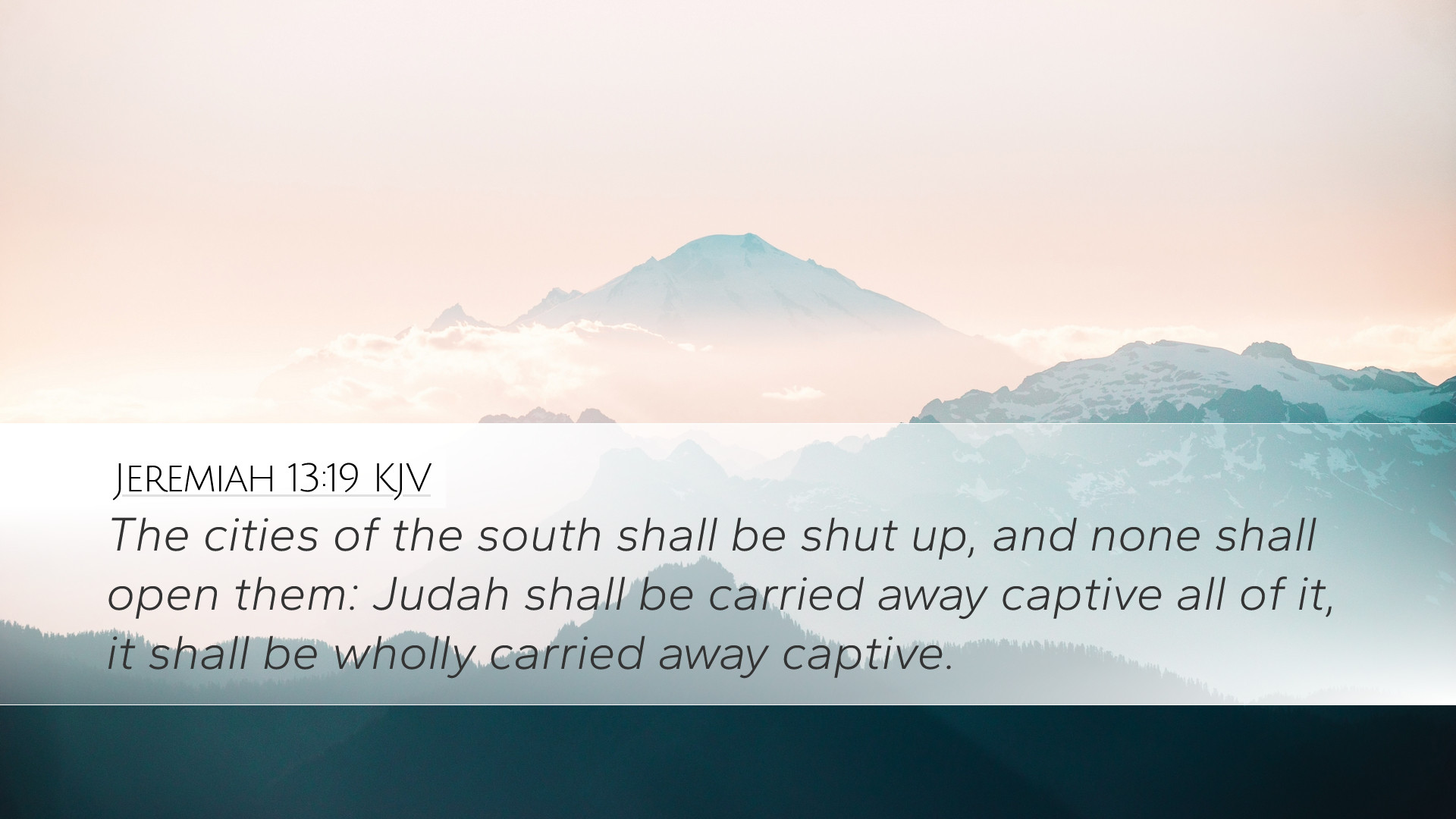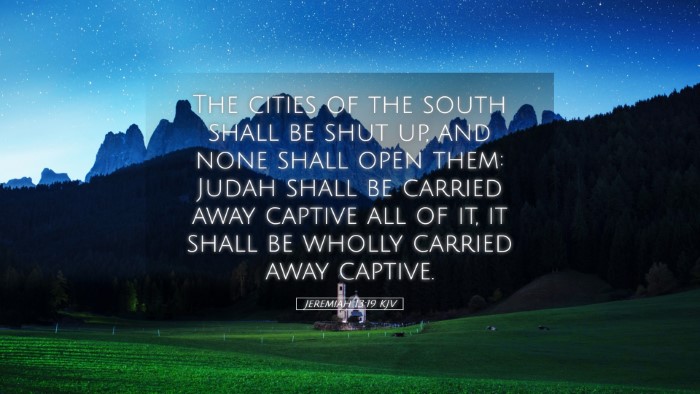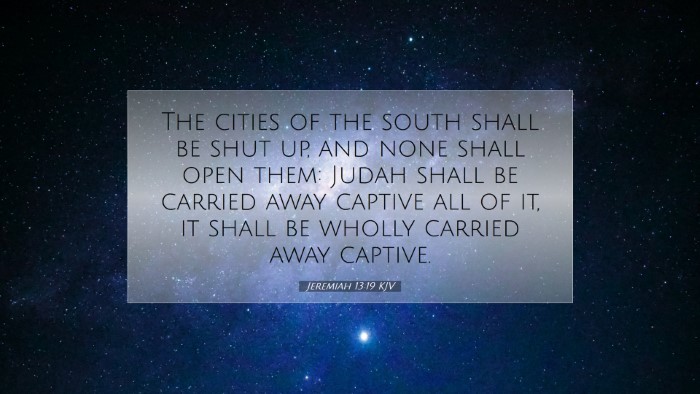Commentary on Jeremiah 13:19
Jeremiah 13:19 states, "The cities of the south shall be shut up, and none shall open them: Judah shall be carried away captive all of it; it shall be wholly carried away captive." This verse serves as a dire warning and foretelling of the impending judgment upon Judah, highlighting themes of captivity, desolation, and the sovereignty of God over nations.
Contextual Background
In the context of the Book of Jeremiah, this passage reflects the prophet's role as a messenger of God during a tumultuous period in Judah's history, when the nation faced the threat of Babylonian conquest. Jeremiah's prophecies were intended not only to warn of imminent destruction but also to call the people to repentance.
The "cities of the south" likely refer to the fortified cities of Judah that would ultimately face siege and be rendered defenseless. This conveys a sense of despair as the prophetic word illustrates the totality of Judah's defeat.
Insights from Commentaries
-
Matthew Henry:
Henry emphasizes the certainty of God's judgments and the consequence of Judah's unfaithfulness. He notes that the closure of cities signifies total abandonment and loss of security for the people. This imagery serves to remind believers of the consequences of sin and the importance of returning to God.
-
Albert Barnes:
Barnes elaborates on the phrase "none shall open them," interpreting it as a declaration of God's sovereign control over the fate of nations. He stresses that the captivity would be complete ("wholly carried away captive"), underscoring that there would be no remnant left behind, which would ultimately fulfill the divine judgment against the nation for their idolatry and disobedience.
-
Adam Clarke:
Clarke provides a historical perspective, discussing how Judah's previous failures to heed God’s warnings led to this impending calamity. He offers a solemn reminder that nations and individuals alike can face dire consequences from straying from divine paths. Clarke highlights that this prophecy serves as a cautionary tale for the faithful to remain vigilant against sin.
Theological Implications
The theological implications of Jeremiah 13:19 are profound. It serves as a reflection of God’s justice and mercy, demonstrating that while judgment is a critical aspect of God's nature, the call for repentance remains prevalent throughout the Scriptures. This passage invites deep reflection on the nature of divine authority and human agency in the face of impending judgment.
The complete captivity foretold in this verse symbolizes a pivotal moment for the Israelites, representing both physical and spiritual desolation. Moreover, it raises questions about faithfulness, perseverance, and the communal consequences of national disobedience.
Applications for Modern Readers
For pastors, students, theologians, and scholars, this verse serves as an important reminder of the weight of divine judgment and the necessity for a faithful life aligned with God's will. It calls for a critical examination of contemporary practices within the church and society that may lead to spiritual complacency or moral decline.
- Call to Repentance: The verse should inspire contemporary believers to remain vigilant in their faith and to advocate for collective repentance within the church. Similar to Judah, modern societies can also stray from biblical principles and thus face spiritual consequences.
- The Role of Prophetic Voices: The urgency of Jeremiah's message reminds leaders to articulate God's truth clearly, emphasizing the need for prophetic voices in a world seeking truth.
- Understanding God's Sovereignty: The imagery of closed cities reinforces the understanding that God is ultimately in control, facilitating faith in God's plan amidst chaos.
Conclusion
Jeremiah 13:19 poignantly encapsulates themes of judgment and captivity, urging a profound understanding of the realities of sin and the urgency of repentance. The insights from public domain commentaries underscore the enduring relevance of this passage for today's believers. Through a careful examination of scripture and reflection on its implications, modern readers are encouraged to foster a deeper relationship with God and to pursue a life reflective of His will.


